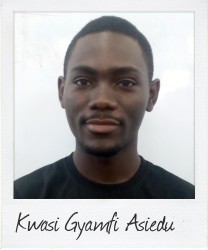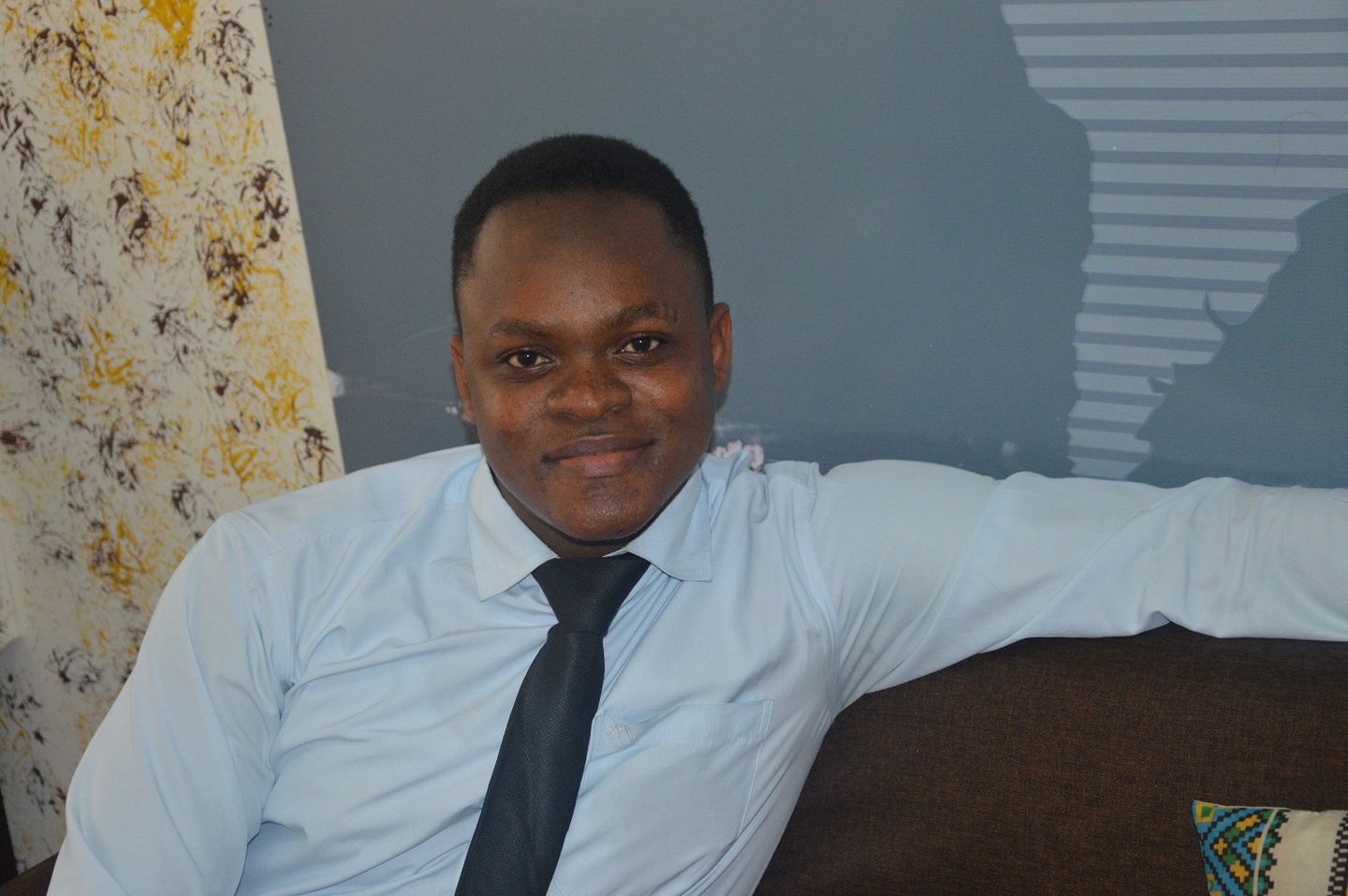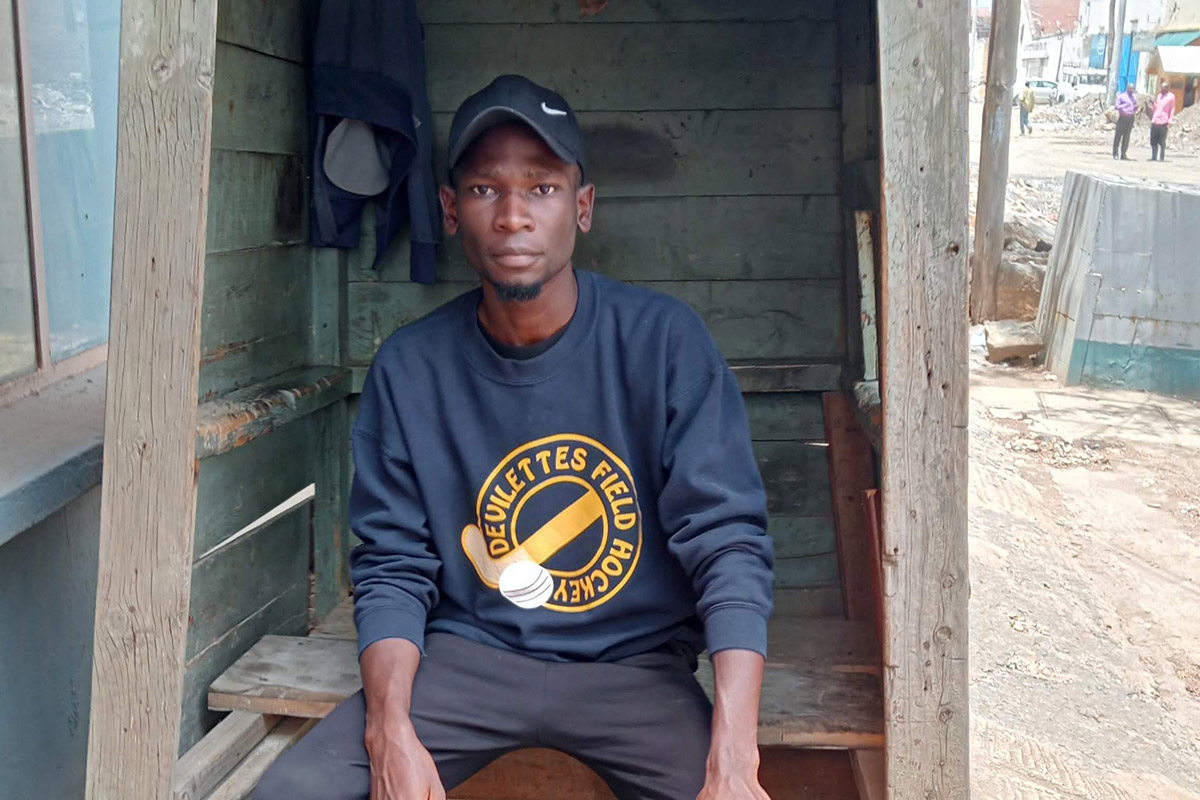“No dream is impossible: aspiring politician”
May 18 Youth are in the minority among candidates for influential elected posts. Kwasi Gyamfi Asiedu, 21, a Commonwealth Correspondent from Ghana, interviews a young candidate to learn about his philosophy and his encouragement for youth engagement in politics.
Youth are in the minority among candidates for influential elected posts. Kwasi Gyamfi Asiedu, 21, a Commonwealth Correspondent from Ghana, interviews a young candidate to learn about his philosophy and his encouragement for youth engagement in politics.
In January 2017, my attention was brought to a Facebook post written by one of my university friends. He had just announced the unthinkable. My friend, Desmond Decker, had announced his decision to run for one of the ten Council of State seats – one of which is designated for each of Ghana’s administrative regions.
In Ghana, the Council of State is, as its name suggests, a body whose main responsibility is to offer wise counsel to the president. They have the ears of the country’s leader and are consulted for very critical national decisions.
Over the years, the council has been made up of esteemed chiefs, academics, former judges and civil servants who are all well into retirement or nearing it.
An electoral college met a few weeks later in February to cast their ballots and although Desmond did not win, he had already made history by being the youngest person ever to run for that position.
So why did Desmond, a 24-year-old student, think he needed to be given the chance to advise the Commander-in-chief?
“I must say it is the love and passion I have for the country and the zeal to serve. I want to be a part of the men and women who will build this country and send it to greater heights,” he said to me in an interview.
All over the world, the youth want their voices to be heard in the corridors of power and their aspirations given front row seat at the decision-making table. Who better to champion the cause of young people than young people themselves? I guess that was a slightly naïve question I had posed earlier, as not only did Desmond not win the elections, many discouraged him from standing in the first place.
“[Lots of people advised me against it but] I always try to avoid the negative thinking of people and rather focus on the positive feedback and encouragement I get instead. If Obama won the US elections, why can’t a 24-year-old be a member of the Council of State? No dream is impossible,” he says.
Young people in Ghana are becoming increasingly politically conscious and Desmond is among a growing number of Ghanaian youth who are prepared to not just sit on social media to tweet and complain about the myriad of problems the country faces. They are self-motivated to take the bold step of running for office to fix these problems.
A few days before Desmond’s announcement, a 23-year-old student, Francisca Oteng-Mensah had been sworn-in to Parliament, becoming the youngest ever MP in the country’s history.
“Believe me, running for the Council of State election has really inspired the youth to take up positions in nation building. It has re-energised the youth and will continue to inspire the [even] younger ones growing up. I meet people and they tell me ‘you have inspired me’,” says Desmond Decker.
There are numerous advantages to having young people like Desmond and Francisca in decision-making positions, chief among them being the formulation and implementation of policies and programmes that capture our generation’s aspirations.
However, getting into political office can be an arduous journey for young people. According to the global campaign, Not Too Young To Run, only two per cent of parliamentarians worldwide are under 30, despite the fact that fifty-one percent of the world’s population is under the age of 30.
Some of the major hurdles young people interested in political office have to overcome are the increasing cost of campaigns, manoeuvring the old boy network and tackling head-on societal construction of a ‘wise’ age.
According to Decker, this setback is certainly not the end of the road for him as he hopes to pick himself back up for future public office.
“This is surely the beginning of my political life. I have more ambition and as time goes on we will see what happens…The people of this country deserve great leadership and I believe I have that and will gracefully serve them with all my heart.”
Even in electoral disappointment, the story of Desmond is an exemplary one that should galvanise fellow young people across the world not only to be interested in politics, but also to be courageous to take up positions of leadership in our respective countries and the larger international society.
Photo credit: Desmond Decker, courtesy of Kwasi Gyamfi Asiedu
………………………………………………………………………………………………………………
About me: I am Kwasi, a journalism student from Ghana. I hope to use my skills to tell positive stories about marginalised communities in the world, with the belief that these stories would force action that improves the lives of the people.
………………………………………………………………………………………………………………
Opinions expressed in this article are those of the author and do not necessarily represent the views of the Commonwealth Youth Programme. Articles are published in a spirit of dialogue, respect and understanding. If you disagree, why not submit a response?
To learn more about becoming a Commonwealth Correspondent please visit: http://www.yourcommonwealth.org/submit-articles/
………………………………………………………………………………………………………………




